
2.5% Injectable Polyacrylamide Hydrogel for Joint Healing in Horses
Recent study results show this treatment for osteoarthritis might benefit horses in both the short and long term.

Recent study results show this treatment for osteoarthritis might benefit horses in both the short and long term.

Learn more about this respiratory disease and how it affects adult horses housed on pasture in hot, humid climates.

An expert reviews material showing 2.5% polyacrylamide hydrogel (PAAG) is effective, long-lasting, and safe for treating early- and late-stage equine osteoarthritis. Sponsored by Contura Vet.
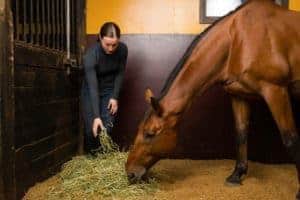
What should and shouldn’t horses with heaves (or equine asthma) eat? A nutritionist offers advice.

When switching your horse to a forage-focused diet, first obtain a hay analysis and choose a ration balancer that fills the nutritional gaps.

A comprehensive look at options for keeping equine athletes with arthritis on the move. Sponsored by Bimeda.

In this case report we see how a senior horse diagnosed with severe equine asthma repeatedly developed pneumonia.

Don’t balk at the S-word on the feed label. It might be just what your adult horse needs.

Your horse’s nutritional requirements depend on his life stage and individual needs.
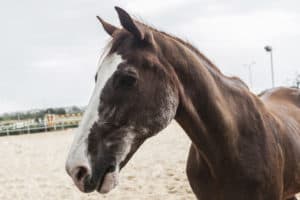
Is your senior horse a picky eater? Be sure he has regular veterinary dental examinations and consider changing his forage or concentrate feed.

Don’t take a wait-and-watch approach when it comes to this common cause of colic in older horses. Read more about lipomas in The Horse’s Research Roundup 2023 issue.

Find out what a veterinarian might look for when examining a horse that loses his balance after jumping a fence.
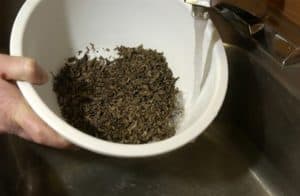
An equine nutritionist offers advice about soaking beet pulp and ensuring it’s safe for horses to eat.
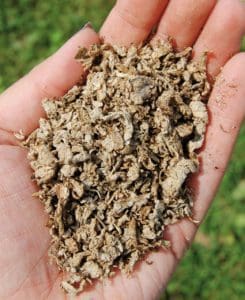
An equine nutritionist answers common questions about beet pulp, which has long been a mainstay in many feed rooms for horses, especially during the winter months.

Vitamins and minerals comprise a small portion of the horse’s diet by weight, but their importance is enormous. Learn more about when supplementation might be needed.
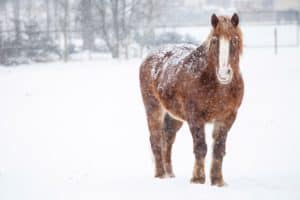
Cold weather affects older horses more than it does their younger companions. Learn how to keep your senior comfortable and healthy during cold weather.
Stay on top of the most recent Horse Health news with
© 2022 Copyright Statement dolor sit amet, consetetur sadipscing User Terms, sed diam nonumy eirmod tempor invidunt ut labore et dolore magna aliquyam erat, sed diam voluptua. At vero eos et accusam et justo duo dolores et ea rebum. Stet clita kasd gubergren, no sea takimata sanctus est Lorem ipsum dolor sit amet.
"*" indicates required fields